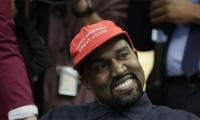News Analysis
Clad in saffron robes, Yogi Adityanath, head priest of the Gorakhnath temple in Gorakhpur and a hard line communal rabble rouser, was elevated to chief minister of Uttar Pradesh (UP), which brings Hindutva to the forefront of UP’s extremely polarized politics, pours cold water on PM Modi’s agenda of “development for all” and paves the way for Hindu Rashtra beyond India’s most populous state.
In attendance at his public oath-taking ceremony were Prime Minister Modi, senior cabinet members, BJP stalwarts -- including Amit Shah, Advani and Joshi -- and chief ministers of 11 states. It showed the extraordinary importance of Sevak Jogy’s elevation from a hate-monger in eastern UP to the chief executive of the most electorally crucial state. His rise to power was seen by dozens of thousands of zealots as the further consolidation of Hindutva and was welcomed with the slogan: “UP mein Rehna Hoga, Yogi, Yogi, Kehna Hoga” (If you were to live in UP, you have to submit to Yogi). A jubilant firebrand, Umma Bharati, yet another saffron-clad leading communal figure, termed Yogi’s victory as the second most important development in her missionary life. Who is this Yogi Adityanth and why is his rise to power both celebrated by the Hindutva Parivar and detested by seculars at large?
Yogi, the head priest of Gorakhpur Mutt, became famous for his campaigns of purification or “ghar ko Wapsi” (converting Muslims and Christians back to Hinduism), fuelling communal riots in 2007, threats to “kill 100 Muslims to avenge killing of one Hindu”, “marry 100 Muslim women to avenge the conversion of one Hindu woman” and for his dedication to construct Ram Janam-bhoomi temple in place of the Babri mosque, which was destroyed by Hindu zealots to avenge Emperor Aurangzeb’s religious excesses against Hindus’ sacred places. He is so popular among the hardcore activists that they changed the slogan of “Hr Hr Modi, Ghar Ghar Modi” to “Dilli mein Modi, UP mein Yogi”.
The Bharatiya Janata Party (BJP) won UP’s state elections in a landslide by scoring an almost three-fourths majority (325/403 seats) on the slogan of “sab ka sath, sab ka Vikas” (taking all on board, for the development of all). Modi did raise anti-Pakistan sentiments by referring to ‘surgical strikes’ across the LoC and threats to stop the flow of water in the initial stage of election campaign, but his anti-Pakistan rhetoric didn’t work. He, however, continued to harp on communally divisive issues by accusing CM Akhlesh Yadav’s Samajwadi Party’s (SP) policy of “appeasement of Muslims”. The trio of Modi, Amit Shah and Yogi fanned Hindu-Muslim communal polarization to neutralize the caste divisions in favor of majoritarian Hindu consolidation.
Faced with the Mandal Commission-driven, caste-based politics of Samajwadi Party (SP) led by incumbent CM Akhlesh Yadav (with a support base of Yadavs and Muslims in alliance with the Congress party) and Mayawati’s Bahujan Samaj Party ( based among Dalits and Muslims) Modi adopted an exclusionary approach towards Muslims while appealing to Hindus across all caste-divides, He put together an exclusive coalition of Hindu forward castes, non-Yadav Other Backward Castes (OBCs) and non-Jadav Scheduled Castes (SCs) . Modi succeeded in his campaign of Hindu communalization while taking refuge behind the pretext of “development for all” agenda against the “goonda raj and bhrista char” (gangsters’ rule and corruption) of the incumbents.
Optimistic analysts, who had been swayed by the development agenda however communalized it might have been, had quite expeditiously ignored the real designs of RSS’s to covert India from a secular democratic and pluralist state into a Hindu Rashtra. Falsely considering Modi being a soft-Hindutva peddler, they assumed that after consolidating Hindutva mass base in UP, he would be moving beyond exclusionary communalism. But they have been proven wrong with the nomination of extremist Yogi as the chief minister of UP. It seems now that the BJP government in UP will go ahead with further communalization and consolidation of expanded Hindutva constituency before the 2019 general elections, besides peppering it with development of most backward UP with one-sixth of population and almost one-fifth of Lok Sabha seats.
Indeed Modi wave in UP has defeated the politics of Jatiwad (caste-based politics), parivarwad (dynastic politics) and marginalized Muslim factor. But India is too diverse and Muslims are quite numerous as compared to religious minorities in Pakistan who are also not treated well. But the Muslims in UP lost very badly despite having a clout in at least 130 state assembly constituencies. The BJP did not give even a single seat to the Muslims as opposed to BSP, who gave 97 tickets, and SP-Congress alliance gave over 70 tickets to the Muslim candidates. The Muslims could hardly win in 24 constituencies as opposed to 69 seats in 2012 state elections.
Elevation of Yogi, who also heads his own extremist outfit called Hindu Yuva Vahini, to the post of chief minister of UP has sent shocking waves across India and has put even Hindutva’s apologists to shame. The communal conflict in eastern UP may be further intensified that will in turn further push Muslims in the opposite direction with the expansion of Madrassas. Representing hard-Hindutva, Yogi is expected to take a much vicious course and may turn out to be a counter-check on soft-Hindutva that may adversely affect an otherwise “communalized development” agenda propounded by Modi. Paradigm of Hindu Rashtra and “development of all” are mutually exclusive and provide ample space to the secular forces to stop Yogized New India from derailing the republic.
It seems that the mother of all Hindu fundamentalists, RSS, has finally prevailed. Rising wave of Hindutva may not be a good omen for Pakistan’s fight against violent extremism as Hindu extremism may reinforce it. (imtiaz.safma@gmail.com)
Kasuri urged authorities of Pakistan and China to pull their resources to defeat forces seeking to disrupt the...
IHC said that several people had not returned the cipher copies they had, and asked if it meant it was right for the...
Gilani gave floor to Leader of Opposition Syed Shibli Faraz, who insisted that with unity they could take country...
Match witnessed intense action and dramatic twists, keeping fans on the edge of their seats until the final ball
Apex court bench was reconstituted after Justice Yahya Afridi recused himself from hearing the case earlier this month
ECP issued a notification in this connection pursuant to orders passed by LHC







